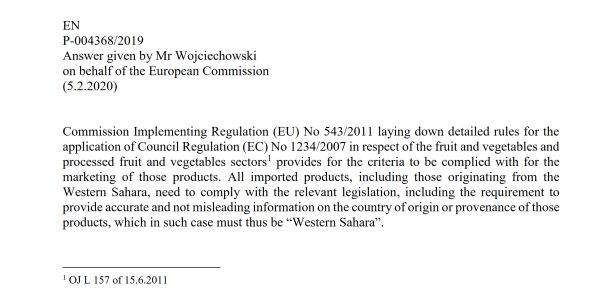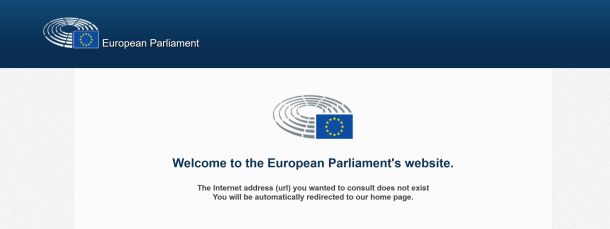On Monday, the European Parliament's committee for International Trade decided to delay the ratification-process of the EU-Moroccan agricultural agreement due to legal ambiguities.
The decision to postpone follows a legal opinion by the Parliament’s lawyers, questioning the agreement's unclear impact on the people of Western Sahara.
More specifically, the legal services raised concern on the fact that it is not clear “whether and how the proposed Agreement will be applied to the territories of Western Sahara and how it will actually benefit the local people”. It is also unclear “whether the further liberalisation of those goods is in accordance with the wishes and interests of the people of Western Sahara”.
"Under these circumstances, it seems appropriate to clarify these questions with the Commission before taking a position on the consent to the conclusion of the proposed Agreement", the opinion concluded.
José Bové, the rapporteur appointed by the international trade committee, has announced he will not draft his report until the European Commission clears up these legal issues.
According to a UN Legal Opinion, any economic activity in the Non-Self Governing Territory of Western Sahara requires prior consent of the people of the territory. To date, the EU has not obtained the consent from the Saharawi people on any trade agreement with Morocco covering Western Sahara's abundant natural resources.
Both the USA and the EFTA states have specifically excluded Western Sahara from the scope of their free trade agreements with Morocco.
The agreement, which foresees an increased liberalisation of EU imports from Morocco, faces heavy opposition from Southern European agricultural organisations. Especially European tomato-producers fear they will be outcompeted by Morocco’s cheaper exports. An increasing percentage of tomatoes labelled as Moroccan, are grown illegally in the occupied territories of Western Sahara.
EU Commission backtracks on labelling Western Sahara goods
What is EU's position on labelling of products from occupied Western Sahara? The EU Commission has now for the third time published a response to a parliamentary question on the matter, but the latest version fails to address the question.
Why does this EU statement keep disappearing?
A clarification by the EU Commission on labelling of products from Western Sahara was published, then removed, then published again and has now been removed again from EU websites.
EU reaffirms: Western Sahara products to be labelled as such
Two weeks ago, the EU Commission announced that products from Western Sahara should be labelled accordingly, only to withdraw that statement the very next day. Today, the Commission reaffirms its original position.
Spectacular backtracking by EU Commission on Western Sahara labelling
On 5 February 2020, the EU Commission announced that products from Western Sahara should be labelled accordingly. But about 24 hours later, all traces to that statement had been removed from EU websites.



